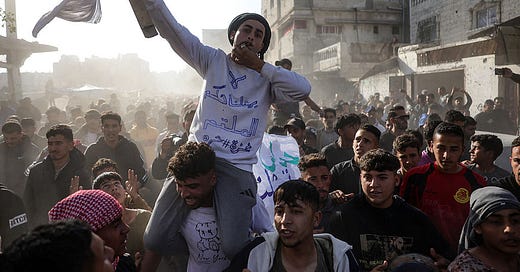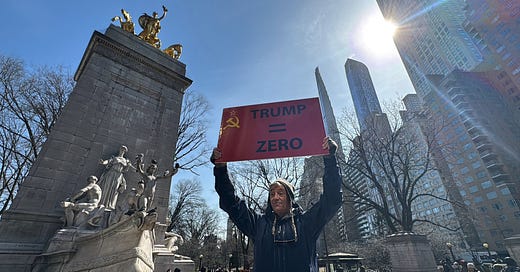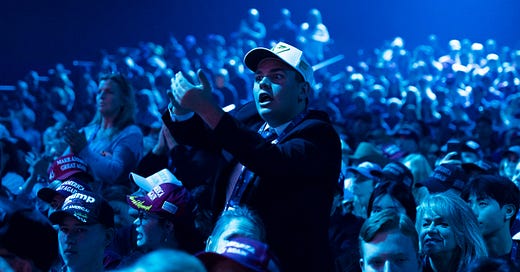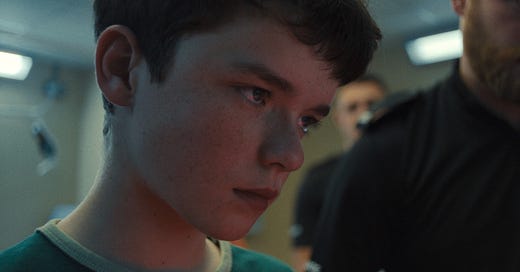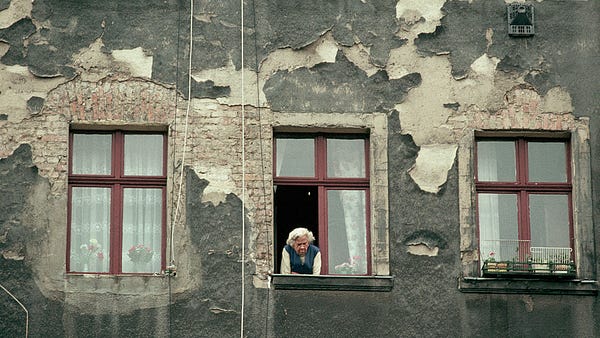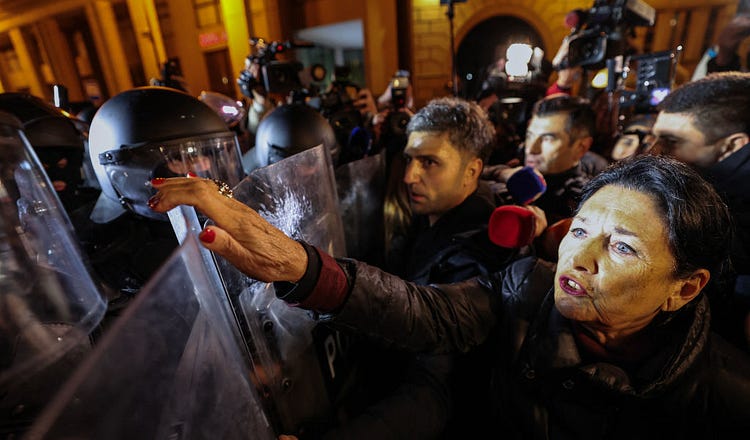
Every night for more than two weeks, tear gas has clouded Tbilisi, the capital of Georgia, as riot police chase pro-Western demonstrators through alleyways and courtyards. Water cannons sweep across crowds and videos circulate online that show officers beating protesters.
Luka Dzidziguri, 23, one of the protesters, recalled one of the early demonstrations. After protesting all night, he was heading home around 7:00 a.m., exhausted, only to be confronted by police.
“They beat me, punched me, insulted me,” Dzidziguri told The Free Press. “They poured water down my neck and pulled a hat over my head so I couldn’t see anything. There were at least five of them. They punched me in the teeth, split my lip. My mouth filled with blood, but with the hat on, I couldn’t spit it out—I had to swallow it.”
Many protesters describe similar ordeals. Police have gone beyond targeting crowds and beating people on the streets to raiding activists’ homes and arresting opposition members.
Mikheil Zakareishvili, 36, another protester, spent two nights in a detention center outside Tbilisi. The overcrowded facilities in the capital have forced authorities to transport detainees to outlying cities. Zakareishvili’s face bears the marks of his encounter with law enforcement, with both eyes darkened by bruises.
“I smiled at something, and one of the policemen yelled, ‘Why are you laughing? Fuck you!’ and punched me,” Zakareishvili said. “They threw me down with others and beat us.”
The anger ignited on November 28, when Prime Minister Irakli Kobakhidze of the ruling Georgian Dream party declared that Georgia would not pursue European Union membership until at least 2028. The statement, widely perceived as a pivot toward Russia and a betrayal of the nation’s pro-Western aspirations, sent shockwaves through the country.





